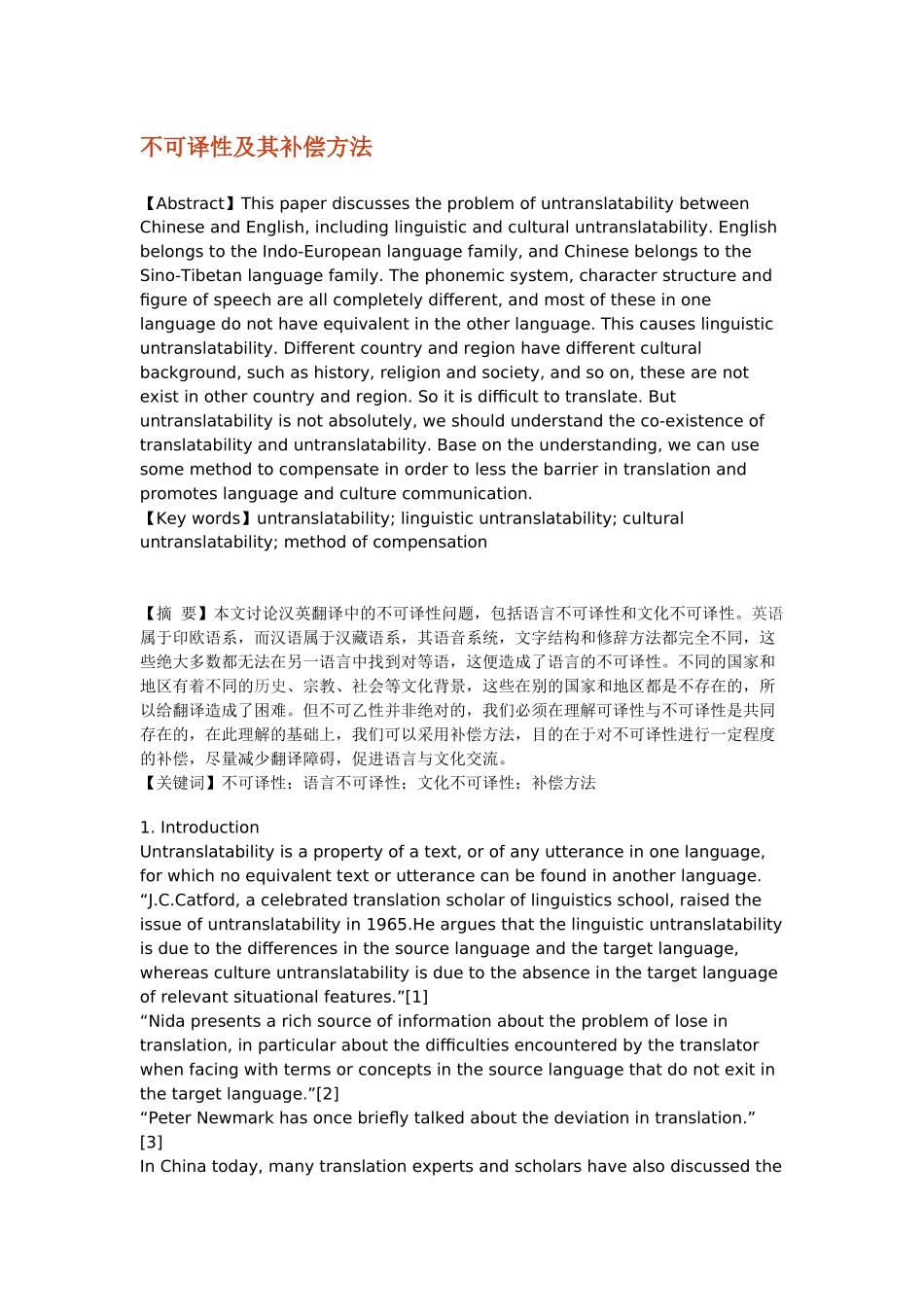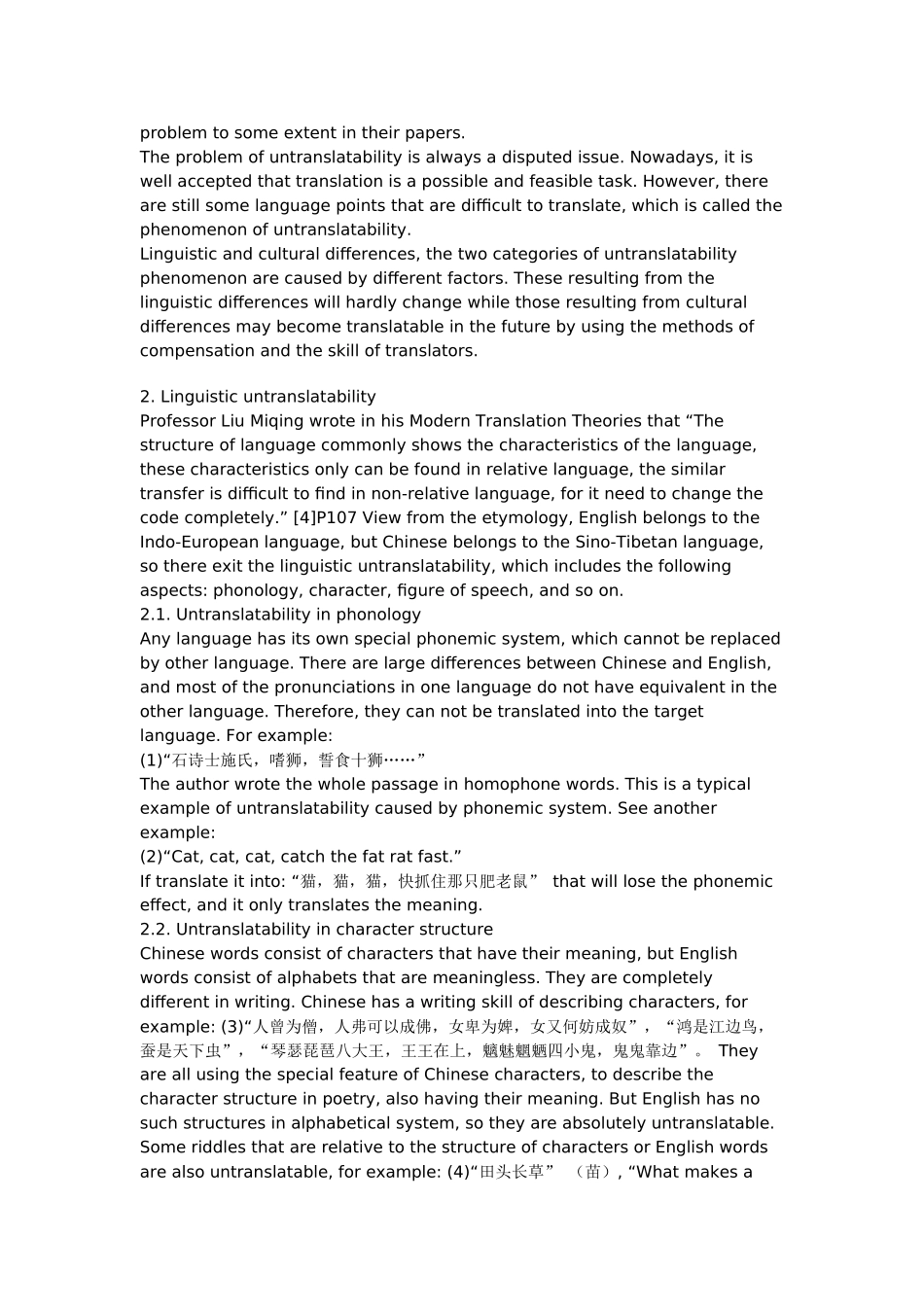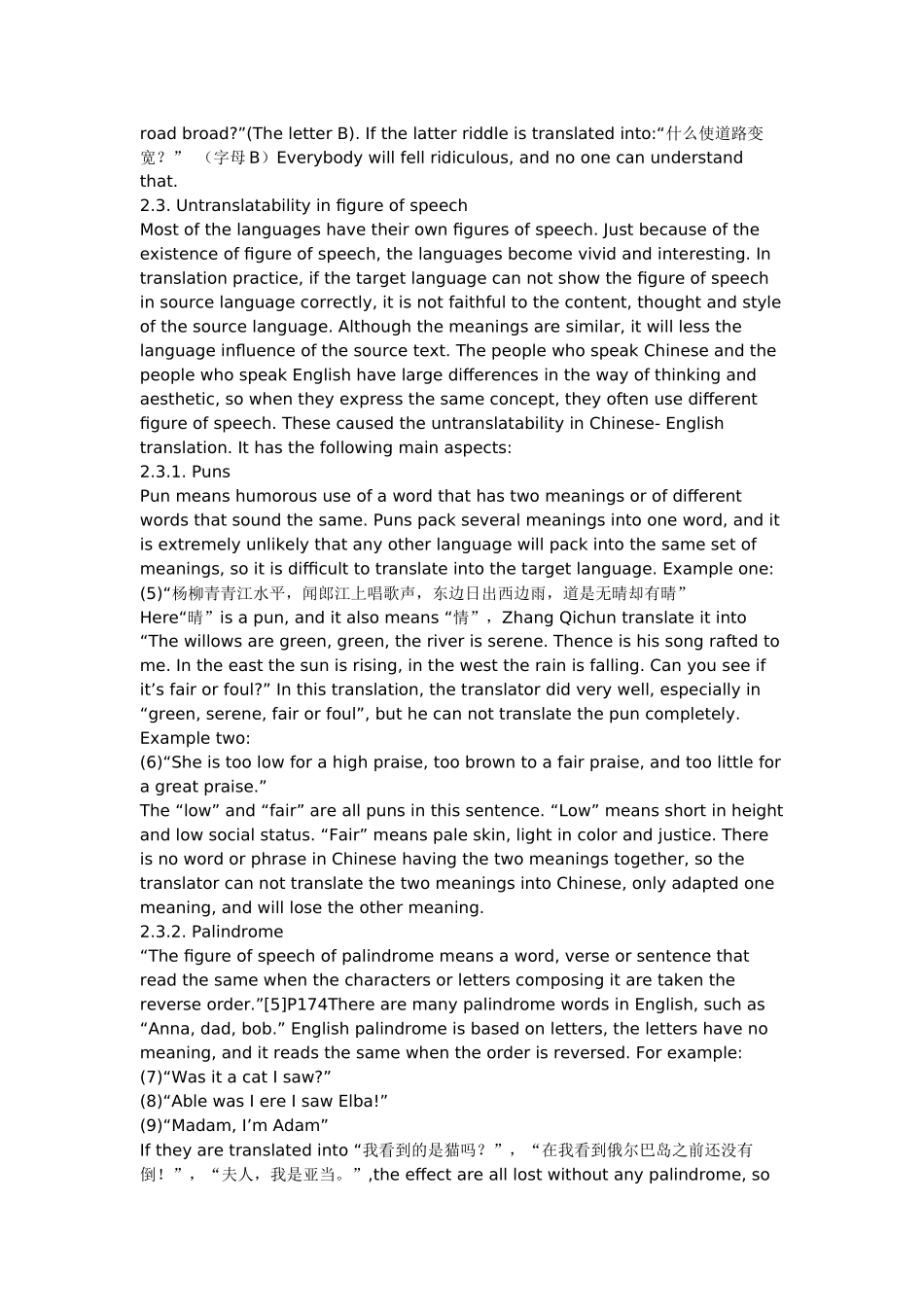不可译性及其补偿方法【Abstract】This paper discusses the problem of untranslatability between Chinese and English, including linguistic and cultural untranslatability. English belongs to the Indo-European language family, and Chinese belongs to the Sino-Tibetan language family. The phonemic system, character structure and figure of speech are all completely different, and most of these in one language do not have equivalent in the other language. This causes linguistic untranslatability. Different country and region have different cultural background, such as history, religion and society, and so on, these are not exist in other country and region. So it is difficult to translate. But untranslatability is not absolutely, we should understand the co-existence of translatability and untranslatability. Base on the understanding, we can use some method to compensate in order to less the barrier in translation and promotes language and culture communication.【Key words】untranslatability; linguistic untranslatability; cultural untranslatability; method of compensation【摘 要】本文讨论汉英翻译中的不可译性问题,包括语言不可译性和文化不可译性。英语属于印欧语系,而汉语属于汉藏语系,其语音系统,文字结构和修辞方法都完全不同,这些绝大多数都无法在另一语言中找到对等语,这便造成了语言的不可译性。不同的国家和地区有着不同的历史、宗教、社会等文化背景,这些在别的国家和地区都是不存在的,所以给翻译造成了困难。但不可乙性并非绝对的,我们必须在理解可译性与不可译性是共同存在的,在此理解的基础上,我们可以采用补偿方法,目的在于对不可译性进行一定程度的补偿,尽量减少翻译障碍,促进语言与文化交流。【关键词】不可译性;语言不可译性;文化不可译性;补偿方法1. IntroductionUntranslatability is a property of a text, or of any utterance in one language, for which no equivalent text or utterance can be found in another language.“J.C.Ca...












